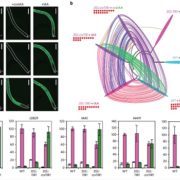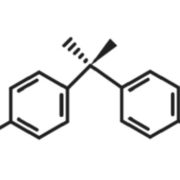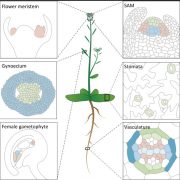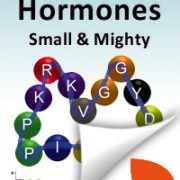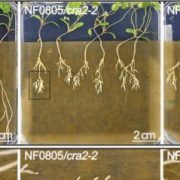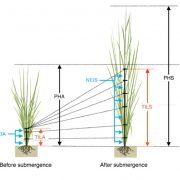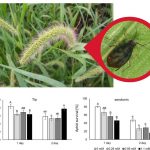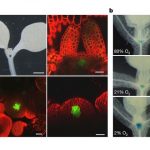β-cyclocitral, a novel regulator of root growth ($) (PNAS)
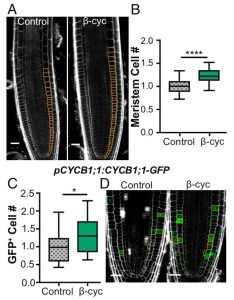 Root growth and branching have essential roles in nutrient and water uptake, and are common targets in crop improvement. Dickinson et al. looked for novel apocarotenoids involved in root development and found that dihydroactinidiolide (DHAD) and β-cyclocitral increase lateral root (LR) branching in Arabidopsis. Further characterization of β-cyclocitral revealed that this compound promotes cell division in LR primordia. The number of meristematic cells increased by more than 20% after β-cyclocitral treatment. Interestingly, the regulation of meristem division does not involve the major pathways previously described as regulators of this process (auxins, ROS, brassinosteroids). The maximum effect of β-cyclocitral in roots was detected at 750 nM, a similar concentration for abscisic acid (ABA) and strigolactones, other apocarotenoid phytohormones affecting root growth. In addition to the promotion of primary and LR growth, β-cyclocitral is able to modify root architecture, generating a deeper and more compact root system; this effect was also observed in tomato and rice. The use of β-cyclocitral treatment could be a valuable tool to improve crop performance in environmental stresses, as demonstrated in this study using salt stress. (Summary by Humberto Herrera-Ubaldo) Proc. Natl. Acad. Sci. USA 10.1073/pnas.1821445116
Root growth and branching have essential roles in nutrient and water uptake, and are common targets in crop improvement. Dickinson et al. looked for novel apocarotenoids involved in root development and found that dihydroactinidiolide (DHAD) and β-cyclocitral increase lateral root (LR) branching in Arabidopsis. Further characterization of β-cyclocitral revealed that this compound promotes cell division in LR primordia. The number of meristematic cells increased by more than 20% after β-cyclocitral treatment. Interestingly, the regulation of meristem division does not involve the major pathways previously described as regulators of this process (auxins, ROS, brassinosteroids). The maximum effect of β-cyclocitral in roots was detected at 750 nM, a similar concentration for abscisic acid (ABA) and strigolactones, other apocarotenoid phytohormones affecting root growth. In addition to the promotion of primary and LR growth, β-cyclocitral is able to modify root architecture, generating a deeper and more compact root system; this effect was also observed in tomato and rice. The use of β-cyclocitral treatment could be a valuable tool to improve crop performance in environmental stresses, as demonstrated in this study using salt stress. (Summary by Humberto Herrera-Ubaldo) Proc. Natl. Acad. Sci. USA 10.1073/pnas.1821445116


